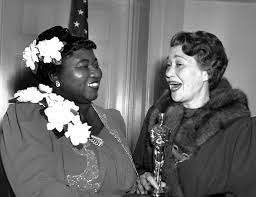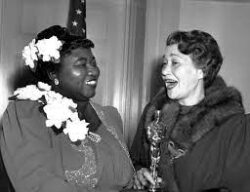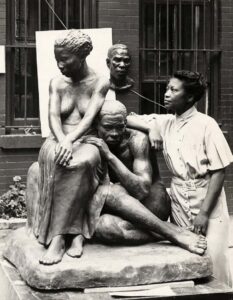
Today in Black History: February 29th
1940 – Hattie McDaniel Wins Oscar

Hattie McDaniel, born on June 10, 1895, in Wichita, Kansas, made history by becoming the first Black person to win an Academy Award. Her groundbreaking achievement occurred in 1940 when she won the Oscar for Best Supporting Actress for her role as Mammy in the film “Gone with the Wind.” However, the ceremony took place in a segregated setting, with McDaniel seated separately.
Facing criticism for roles perpetuating stereotypes, McDaniel defended her work, stating she’d “rather make seven hundred dollars a week playing a maid than seven dollars being one,” according to Wikipedia. Despite the controversy, her win marked a significant milestone in the film industry. McDaniel’s career extended beyond acting; she was also a radio performer and singer. Her journey was marked by resilience and determination in an era of racial inequality.
She continued to break barriers, opening doors for future Black actors and actresses. McDaniel’s legacy reflects both her individual accomplishments and the broader struggles against discrimination in the entertainment world. Her Oscar win, while a symbol of progress, remains a testament to the challenges faced by Black artists during that time. Hattie McDaniel passed away on October 26, 1952, leaving an indelible mark on the history of film and paving the way for greater diversity in the industry.
1892– Augusta Savage Born

Augusta Savage, born on February 29, 1892, in Green Cove Springs, Florida, emerged as a pioneering Black sculptor during the Harlem Renaissance. Overcoming racial and gender barriers, Savage’s artistic journey began with molding clay from local riverbanks. Recognizing her talent, a benefactor supported her education, leading her to study at Cooper Union and the Fontainebleau School of Fine Arts in France.
Returning to the U.S., Savage gained renown for her sculptures celebrating Black life and addressing social issues. Notably, her piece “Gamin” (1929) received acclaim at the Salon d’Automne in Paris. In 1934, she became the first Black artist elected to the National Association of Women Painters and Sculptors.
Despite financial struggles and racial bias, Savage’s impact endured. Her attempt to establish the Savage Studio of Arts and Crafts in Harlem faced challenges, yet it provided crucial art education opportunities for Blacks. Her legacy lies in her influential sculptures, including the iconic portrait bust of W. E. B. Du Bois, and her role in fostering opportunities for Black artists. Augusta Savage passed away on March 27, 1962, leaving behind a powerful legacy in the fight for racial equality in the arts.

